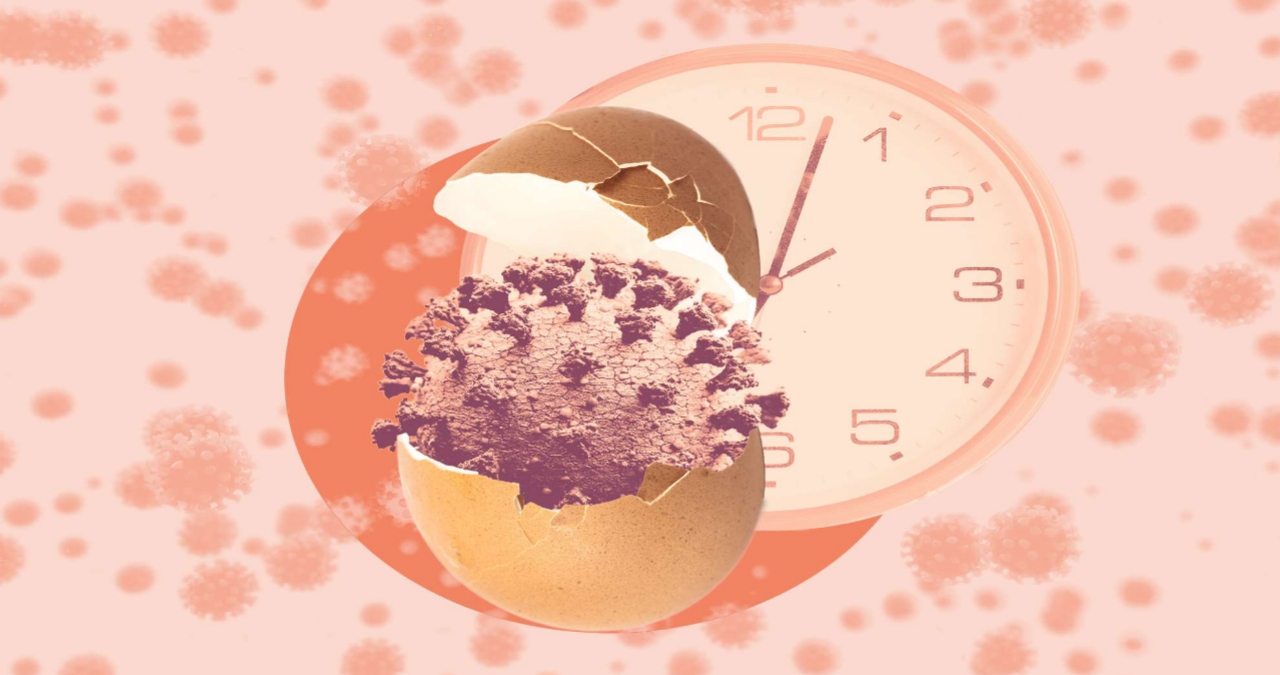Omicron Incubation Period: What You Need to Know
The emergence of the highly transmissible Omicron variant has caused concerns worldwide about how long its incubation period lasts. Recent studies provide important insights into the Omicron incubation period and how it compares to previous variants like Delta. In this article, we examine what the latest research says about the average Omicron incubation period and what to expect after exposure.
The Average Omicron Incubation Period
Most experts agree the average incubation period for the Omicron variant is around 3 days. However, the range can span anywhere from 1 to 5 days. Some key points about the average Omicron incubation period:
- According to the WHO, the median incubation period for Omicron is 3-4 days. However, it can be as short as 1 day or as long as 5-6 days.
- South African researchers initially estimated the median incubation period at 3 days based on case studies in the country where it was first detected.
- A large UK study found the median incubation period for Omicron to be around 3 days, with most cases developing symptoms within 4-5 days of exposure.
- In contrast, the average incubation period for the original Covid strain and Delta variant was 5-6 days, with a range of 2-14 days. Omicron seems to cut this window in half.
While the average incubation period gives us a general idea, it’s important to remember the range can vary significantly. Some people may develop symptoms much sooner or later than the 3 day average. This is why isolation and testing protocols still follow precautionary timelines.
Comparing Omicron to Previous Variants
Several early studies have compared the Omicron incubation period to Delta and found some distinct differences:
- Researchers in Norway found the median incubation time was 3 days for Omicron versus 3-4 days for Delta.
- Danish researchers observed an incubation period 1.5-2x faster for Omicron compared to Delta, with most cases occurring 2-4 days after exposure.
- A UK Health Security Agency report noted almost twice as many Omicron infected people developed symptoms within 2 days compared to Delta and 3 times as many within 3 days.
The evidence consistently shows Omicron’s incubation period is consistently faster than Delta’s. However, Delta still had incubation periods as short as 2 days in some cases, showing variations between individuals and strains.
When Do Symptoms Typically Appear?
Most people will develop Covid symptoms within a few days after exposure during the virus’s incubation period:
- Around 75-80% of people with Omicron expressed symptoms within 3-5 days.
- Only about 25% experienced symptoms 5+ days after exposure, typically on day 6 or 7 for Omicron.
- Some individuals may be presymptomatic for 1-2 days before feeling ill, further shortening the period between exposure and symptom onset.
- The most commonly reported early symptoms of Omicron include sore throat, runny nose, fatigue, sneezing and cough. Fever and loss of taste/smell seem less prevalent initially.
So in summary, those infected with Omicron should diligently monitor for any symptoms from 1-5 days post exposure but especially during the 3-4 day window after potential contact with a case. Early detection is key to isolation and limiting potential spread.
Can You Spread It Before Symptoms?
While the average Omicron incubation period is short, infected people can technically pass on the virus starting 1-2 days before feeling ill. Some key points:
- Viral load seems to peak 0-3 days before symptom onset and declines gradually after, but remains high the initial few days when sick.
- CDC guidance advises isolating starting 2 days before symptoms appear through day 10, covering the presymptomatic window for infectious spread.
- However, presymptomatic transmission of Omicron may be less likely than other variants due to its shorter incubation period and faster onset of symptoms.
- Vaccination, especially with a booster, also appears to shorten the window when someone with Omicron might unwittingly infect others before realizing they are ill.
So it’s hard to pinpoint exactly how infectious someone could be 24-48 hours prior to symptoms based on our current knowledge. Caution is still advised since Omicron appears highly transmissible once symptoms emerge.
Testing and the Incubation Period
Being aware of the typical Omicron incubation period also impacts when to get tested after known exposure:
- Most experts recommend testing 5 days after exposure for the best chance of detection. Some results may be negative if tested earlier.
- Rapid antigen tests are less sensitive in detecting the virus during the incubation period before symptoms arise compared to PCR tests.
- Viral loads seem to be highest during the 1-2 days before and 2-3 days after symptom onset, making that window ideal for testing.
- Isolation for at least 5 full days after exposure is prudent if symptoms develop within that initial post-exposure testing window.
- A second testing at the end of the 5-7 day isolation period also helps ensure the infection has resolved before safely ending quarantine measures.
Incubation periods can vary, so testing should continue if symptoms emerge anytime within 10-14 days of potential exposure to the Omicron variant or a Covid case. Early detection leads to more effective containment.
Other Factors Affecting Incubation Period
While the average Omicron incubation period is around 3 days, some key additional points to consider:
- The initial inoculating “viral load” from exposure impacts how long symptoms take to surface. Higher loads mean faster onset.
- Vaccination status affects incubation periods, with unvaccinated cases tending to experience symptoms sooner on average versus the vaccinated.
- Comorbidities and age can play a role as they impact the immune response. Older adults and those with health issues may see longer incubation times.
- Environmental conditions at exposure like indoor crowding versus well-ventilated areas influence initial viral loads and thus incubation windows.
- Individual biological factors govern immune defenses and susceptibility, which impacts how swiftly symptoms manifest post-infection.
So while averages provide useful guidance, any potential Covid exposure still requires close monitoring and precautions per current testing and isolation protocols. Numerous host and external factors could either compress or prolong incubation. Vigilance prevents unwitting spread.
Should You Continue Daily Activities During Incubation?
With an incubation period of only 1-5 days for Omicron, many wonder if it’s safe to go about normal activities while waiting for symptoms to show. However, experts strongly discourage this approach:
- You are technically able to infect others starting 1-2 days before symptom onset, even if no signs of illness yourself.
- Not all transmissions can be solely attributed to symptomatic individuals. Asymptomatic spread is a real risk too.
- Current isolation protocols aim to account for the full presumed incubation window plus a buffer to avoid accidental exposures.
- Maintaining recommended precautions like distancing and masking minimizes any potential presymptomatic spread even with Omicron’s short incubation period.
- Relying on symptoms alone without adherence to proper isolation periods poses unnecessary risks of transmission at work, school or social gatherings.
So the prudent approach remains limiting activities as much as possible from a known exposure date through the full 10-day isolation window to protect your contacts. Monitor symptoms closely too and follow appropriate testing guidance.
Conclusion
In closing, the key takeaways regarding the average Omicron incubation period include:
- Median duration is generally 3 days but ranges from 1-5 days depending on individual factors.
- Onset of symptoms is consistently faster than previous variants like Delta.
- Presymptomatic transmission is still a risk in the 1-2 days before feeling ill.
- Testing 5+ days after exposure maximizes detection during the typical incubation timeline.
- Isolating for 10 full days after exposure or a positive test covers the presumed incubation period and prevents unintended spread.
While its shorter incubation window slightly reduces the potential window of spread, Omicron transmits extremely efficiently once symptoms start. Adhering strictly to recommended isolation protocols and daily symptom monitoring remain crucial preventive measures against this highly contagious variant. Staying vigilant supports containing transmission in communities.

I’m publisher on vents today if anyone want post on our website then do contact







